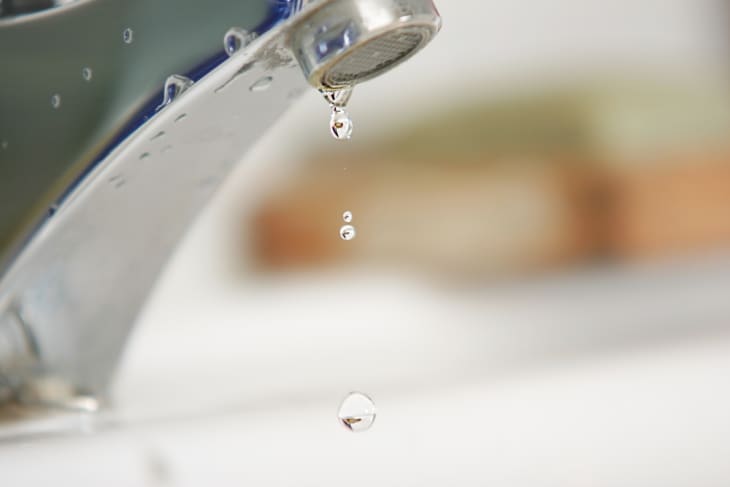The Huge Mistake I Made While Trying to Prevent My Pipes from Bursting — And How You Can Avoid It
在圣诞节早上,我收到一个文本从guests staying at my cottage that I rent out part-time. It read, “Don’t be alarmed, but I think your pipes burst.” A few seconds later, the phone rang. With water pouring through the ceiling, it was, in fact, a reason to be alarmed.
Temperaturesdipped into the teensseveral days prior to that text, and they weren’t anticipated to rise until the following week. I’d been at the cottage for a few days, keeping the temperature in the house up, making sure faucets were running regularly, and puttingfoam covers on the exterior faucets. But when I left Christmas Eve afternoon to visit family, it turns out thecold weatherprecautions I’d taken weren’t enough.
My big mistake (and an easy one to fix!) was not leaving a faucet continuously dripping.I’d been in the house, cooking, showering, and regularly turning on sinks, so I felt like I was covered. But when the house went empty from early afternoon Christmas Eve to mid-morning on Christmas, that was enough time for water to freeze and pressure to build up.
Bridget Blonde, a real estate agent in Chatham, Ontario, works with many first-time homeowners and knows that this type of home maintenance knowledge has to be taught. She explains, “You can leave a tap on at just a drip to make it less likely that pipes will freeze and burst.” Additionally, if you have to leave the home for an extended period of time — over the holidays, for example — she suggests draining all of the water out of the pipes. This is critical if you plan on turning the heat off.
There are other precautions you can take that don’t involve going against the old adage of never letting the water run. My burst pipe happened as a result of insulation that had gotten dislodged in the attic. Freezing air had a clear path in and was blowing directly onto the pipes. If I’d known better, I would have had the insulation checked before winter temperatures set in.
Richard Connelly, a real estate agent with theConnelly Teamat Douglas Elliman, explains, “Insulating your pipes is a great preventative measure. You can purchase pipe insulation at most hardware stores.” In an ideal world, the pipes wouldn’t have been situated so close to an exterior wall. If you’re doing renovations, keep that in mind. Insulationanddistance from outside air is the ideal combo to prevent frozen pipes.
Additionally, installing a water leak detector can quickly alert you to any issues in the water system. “Some detectors monitor temperature and will alert you if the temperature in your home drops to a risky level. Check with your insurance company to see if there are specific models they recommend and if they qualify you for a reduced premium,” says Connelly.
There were two things I did right. The first was keeping the heat on. “Even if you are away fromhome in cold weather, you cannot turn off the heat,” Blonde says. “Leave it running, even at a low level (like 50 degrees Fahrenheit) to prevent the water sitting in the pipes from freezing.” Then, keep your bathroom and kitchen doors open to keep warm air circulating throughout the house.
Lastly, I knew where to find the main water shut-off. I was able to quickly navigate the guests to shut the water off and mitigate the damage. I drove down immediately and had multiple fans blowing on the wet ceiling and drywall, though that didn’t prevent mold from quickly growing inside the walls (who knew cold and damp is actually a prime environment for mold?). That’s a story for another day.
And, don’t worry, I gave the guests a full refund and a free stay a few weeks later — when the temperature was 60 degrees and sunny.

